Why I split with President Museveni—Presidential candidate Muntu
Traversing Beta Parish, Mugoye sub-county in Kalangala district on Monday, October 13, 2025, the Alliance for National Transformation (ANT) presidential flag-bearer told residents that his fallout with President Yoweri Museveni unfolded in 1996 during the heated Ntungamo LC5 elections.
Why I split with President Museveni—Presidential candidate Muntu
_______________
More than two decades after parting ways with the ruling National Resistance Movement (NRM) government, Maj. Gen (rtd) Gregory Mugisha Muntu has unpacked the series of events that shaped his decision.
Traversing Beta Parish, Mugoye sub-county in Kalangala district on Monday, October 13, 2025, the Alliance for National Transformation (ANT) presidential flag-bearer told residents that his fallout with President Yoweri Museveni unfolded in 1996 during the heated Ntungamo LC5 elections.
Where Patrick Buriku of the non-mainstream movement was competing against the system’s preferred candidate and eventual winner, John Wycliffe Karazarwe.
At the time, the country was under the one-party Movement system.
It is understood that tensions flared when Buriku defied the official directive to step down, drawing in Muntu, who at the time was still donning the army fatigue.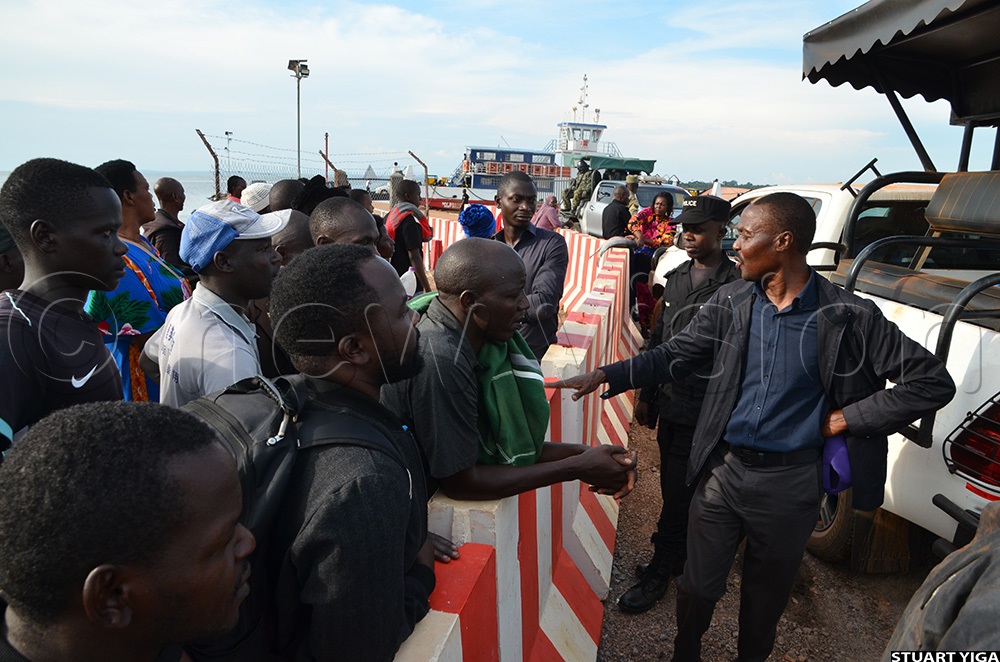
“I asked him to organise a meeting with the security minister and the Inspector General of Police. We agreed to allow an open contest and let the best candidate prevail. This was before the reintroduction of multipartyism. Later, they sent Muruli Mukasa, who was then Security Minister and Gen. Kale Kayihura, who, at the time, I think was still working with the President,” Muntu disclosed.
“Along with a company of military Police, to back one candidate. People threatened to leave the Movement. He panicked and convened a meeting that I attended. I told him, ‘This system has veered off course. If you don’t involve the elders to address this matter, it will explode.’ I was still an army commander then and more than 400 people were present that day,” he added.
Removal of term limits
Adding that the other issue that put him on a collision course with the commander-in-chief was the controversial amendment of Article 105 (2) of the Constitution, which restricted a president to only two five-year terms.
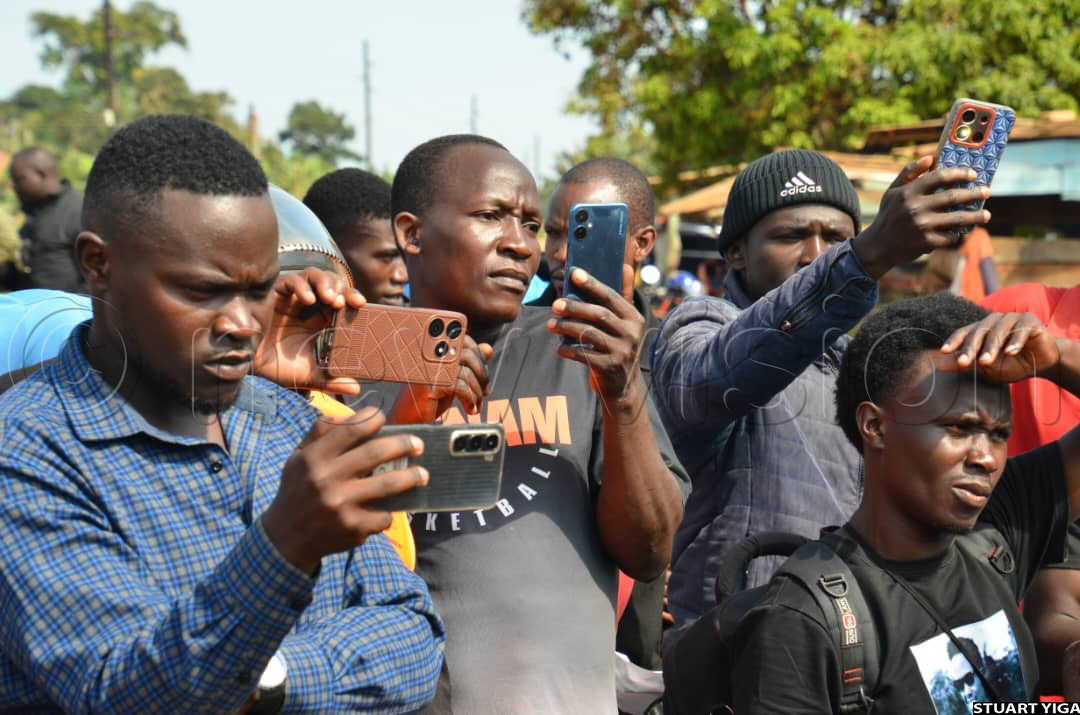
The move was incubated at a six-day retreat at the Kyankwanzi leadership and term limits in 2005. The move was reportedly rubber-stamped at the National Leadership Institute (NALI), Kyankwanzi.
Initially, Muntu told locals that President Museveni was only listening to those who were in support, but Muntu said he objected. Prompting the fountain of honour, ask the audience. To his surprise, the hands of those opposing the move shot up.
“When six of us spoke out, we urged him not to amend the Constitution, and the situation shifted. We agreed to conduct countrywide consultations over the next two months. But when we returned to Kampala, they tried to change the position again. Two of us opposed it, and it failed,” Muntu said.
“Then, on a Sunday, they convened another meeting, which I was unaware of, chaired by General Museveni himself. The first meeting in Kampala had been chaired by the late James Wapakhabulo. They sat at Kyankwanzi and altered the decision. When it was finally tabled at the delegates’ conference of 6,000 people on Monday, the proposal was passed, and that was when we parted ways,” he added.
However, that was not the end of his confrontations with the President. In 2001, veteran politician Col. (rtd) Dr Kizza Besigye, a former State Minister for Internal Affairs, National Political Commissar, commandant of the Masaka Mechanised Regiment and former personal physician to President Museveni, threw his hat into the ring. Muntu says he became the subject of a controversial radio advert.
“They aired an announcement claiming that five generals were urging people to vote for General Museveni. Someone alerted me, and I immediately called the radio management to replace it with my statement, in which I emphasised that, as a uniformed soldier, I was prohibited from engaging in partisan politics. But that everyone was free to vote for the candidate of their choice,” Muntu alluded.
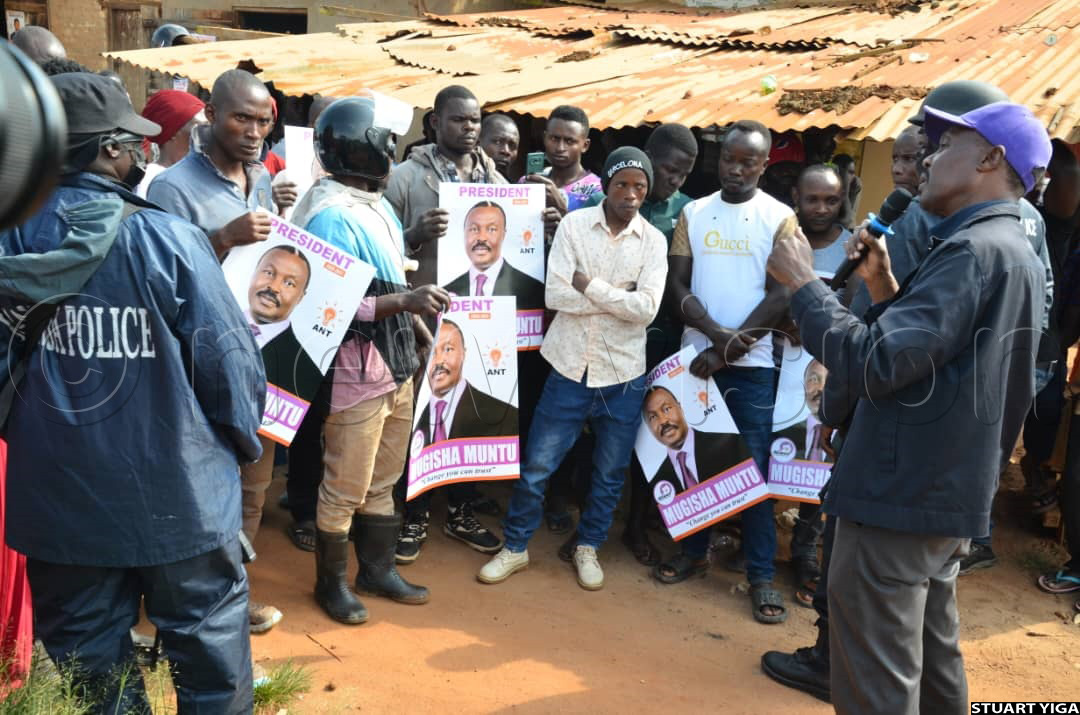
Earlier in 1998, after being removed as Army Commander, Muntu revealed that President Museveni had appointed him minister, but he politely declined the position.
Testimony that he began raising concerns about the country’s governance even while still “on the buttered bread".
Local leaders speak out
Despite his laboured explanations, Fred Mwanje, a local council leader with 15 years’ experience, hypothesised that had Muntu remained close to Museveni, some of the country’s current problems might have been avoided.
“Why did you leave our good Mzee? If you had stayed by his side, the thieves we are dealing with today might not have arisen. The country could have been more developed. It may be too late now, but perhaps you could return and work with Mzee in his later years,” Mwanje said.
However, Muntu said that he would not have left the NRM had Museveni taken a firm stand against corruption. Arguing that while he was arresting those under him, President Museveni failed to arrest he held sway over.
“Why would I remain there?” Muntu asked.
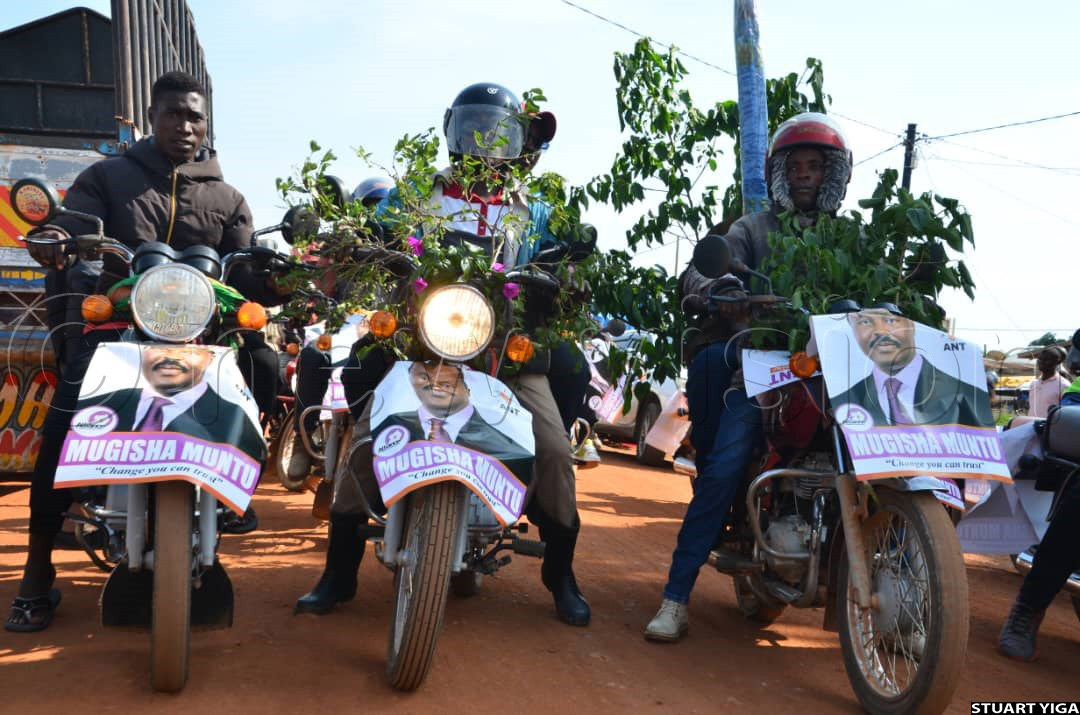
While campaigning at Kalangala town council, Adrian Matovu, the Democratic Party (DP) district vice-chairperson, asked Muntu whether he would support term limits to which he responded in the affirmative.
Profile
Maj. Gen (rtd) Mugisha Muntu joined the National Resistance Army (NRA) led by President Yoweri Museveni in March 1981 at the age of 23, shortly after completing his studies at Makerere University. The rebel force was then fighting to overthrow former President Milton Obote’s government after the flawed December 1980 elections.
His decision initially raised suspicion amongst NRA ranks, given that his late father, Enock Muntuyera, had been a close confidant of Obote. However, Muntu was later absolved when his comrades came to understand his true motivation.
In August of the same year, he was shot during combat and hospitalised at a facility near present-day Kisekka Market in Kampala. After recovering, he returned to the bush. While he was still there, Obote repatriated his father’s remains from Lang’ata Cemetery in Kenya and reburied them with full honours at the family’s Kitunga home.
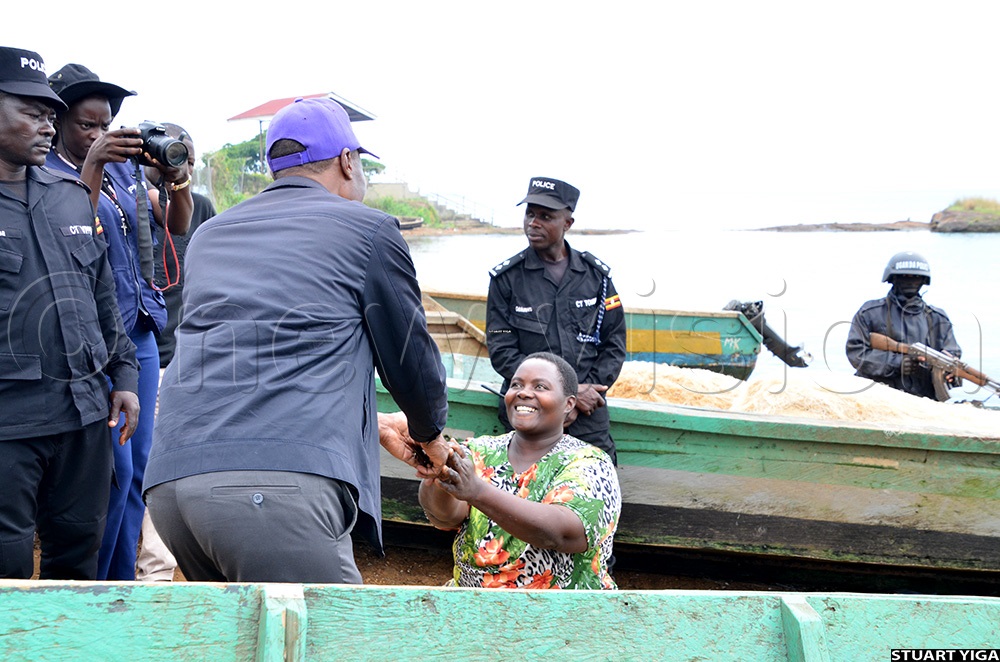
After the NRA captured power, Muntu was appointed head of the Directorate of Military Intelligence (DMI), deputised by the current Rwandan President, Paul Kagame.
He later attended a military course in Russia and, upon his return, was appointed to command the Fifth Division in Lira. In 1989, he rose to the position of Army Commander, a role he held until 1998.
Between February 4, 2001 and February 10, 2006, Muntu served as a Member of the East African Legislative Assembly (EALA) as one of the country’s nine representatives.
He is a founding member of the Forum for Democratic Change (FDC), which he would later lead as President for five years commencing 2012. After which, he left to form the Alliance for National Transformation (ANT).
Muntu is married to Julia Kakonge, and the couple is blessed with two children.